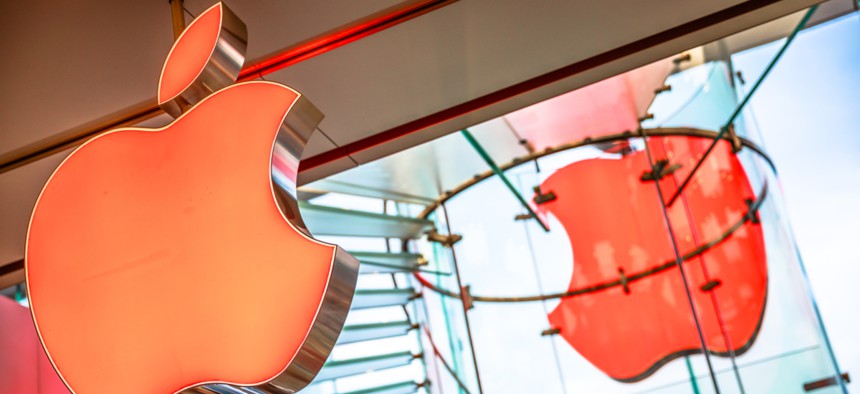Apple’s iCloud Service in China Will Be Managed by a Data Firm Started by the Government

Benny Marty/Shutterstock.com
With so much of its business—both in sales and manufacturing—in China, Apple has stay on Beijing’s good side.
Apple has notified its users in mainland China that starting next month, all of their data will be stored domestically in China. The company is complying with a law implemented in 2017 that dictates how foreign tech companies can operate in China as tensions increase between Washington and Beijing over cross-border technology deals.
Starting late February, iCloud data generated from users with a mainland Chinese account will be stored and managed by data management firm Guizhou-Cloud Big Data (GCBD). The two announced their partnership to open a data center in July 2017.
“With effect from 28 February 2018, iCloud services associated with your Apple ID will be operated by GCBD,” the email reads. “Use of these services and all the data you store with iCloud—including photos, videos, documents, and backups—will be subject to the Terms and Conditions of iCloud operated by GCBD.”
A quick comparison between the new and old Terms and Conditions for iCloud in China reveals they don’t differ much, except for the addition of one paragraph. It reads:
If you understand and agree, Apple and GCBD have the right to access your data stored on its servers. This includes permission sharing, exchange, and disclosure of all user data (including content) according to the application of the law.
According to state media outlet People’s Daily, GCBD is a data storage company established in 2014 by the local government of Guizhou province in southern China.
By moving data from its mainland Chinese users to a place inside the country’s borders, Apple is complying with China’s Cybersecurity Law. The vague, sweeping policy which went into effect in 2017 requires foreign companies to store all of the data they generate from China inside China’s borders.
That creates logistical issues for foreign companies as well as issues regarding user privacy and surveillance. The Chinese government and its domestic companies have an established track record of taking data shared on social media—including private chats—and punishing individuals for spreading information critical of the party. GCBD’s ties to the state only reduce the discretion Apple would have should a government body demand it hand over iCloud user data.
Apple said in a statement that the transfer “will allow us improve the speed and reliability of our iCloud services products while also complying with newly passed regulations that cloud services be operated by Chinese companies.”
“Because of our commitment to transparency, there will be a series of customer communications over the course of the next seven weeks to make sure customers are well informed of the coming changes. Apple has strong data privacy and security protections in place and no backdoors will be created into any of our systems,” it added.
Apple’s notification comes amid a chill between the US and China. Last week Alibaba payments affiliate Ant Financial confirmed that its attempt to acquire US-based remittance company MoneyGram had fizzled, due to regulatory concerns from Washington DC. The Wall Street Journal reported that Shenzhen phone maker Huawei’s deal with AT&T to sell its devices faltered for similar reasons.
With so much of its business—both in sales and manufacturing—in China, Apple has stay on Beijing’s good side, lest it risk losing market access. The price, at times, is the privacy of its users.
NEXT STORY: The False Promises of Worker Retraining





